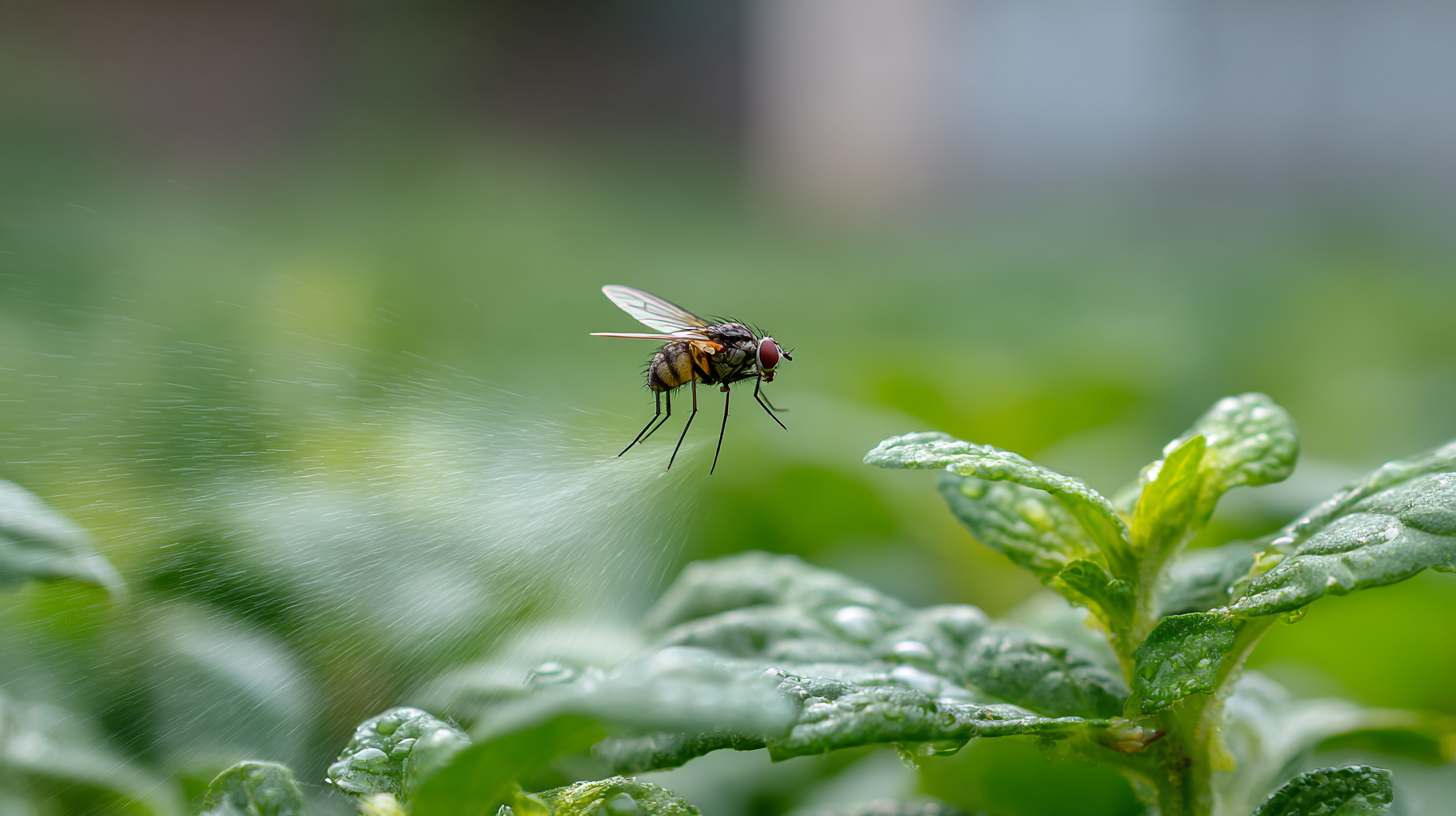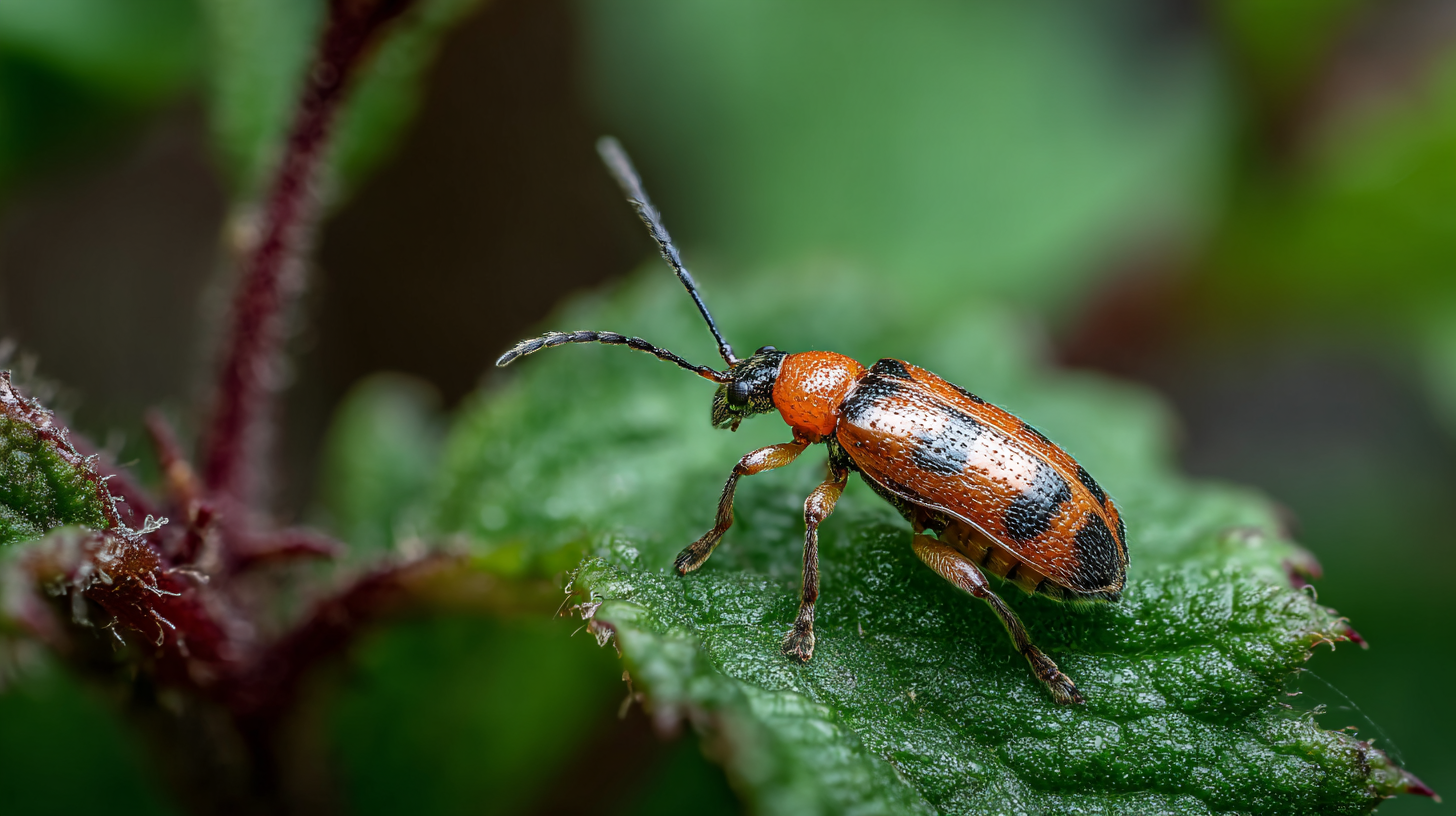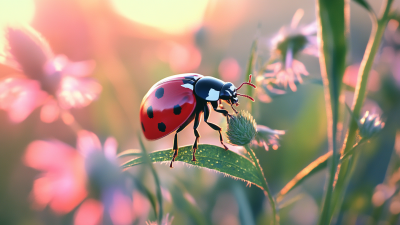 0551-68500918
0551-68500918 





If you're trying to keep your home and garden free of pests, having some solid strategies for insect control is pretty much a must. We all know how tricky it can be to deal with different insect infestations, and honestly, the key is staying up-to-date with the latest solutions. That’s where Innovation Meiland (Hefei) Co., LTD. really shines — they’re all about creating new pesticides, formulations, and methods to stay ahead of pests. Based in Hefei, China, Meiland Stock is dedicated to bringing cutting-edge stuff that adapts to what we need in pest control today. By using the latest tech and smart strategies, they want to help people protect their spaces without sacrificing safety or the environment. This article is packed with useful tips and ideas to help you get better at Insecticide Control, making your homes healthier and gardens happier. Let’s dive in and see how you can make pest management easier and more effective for yourself!

These days, insecticide tech is really advancing quickly, making pest control more effective while still being kind to our environment. The latest formulas are pretty targeted—they focus on specific pests so they don't accidentally hurt useful insects or other critters. For example, some new Biological Insecticides use natural predators or microbes, which offers a more eco-friendly way to keep pests at bay. Not only does this stuff work well, but it also fits pretty nicely with the growing interest in organic gardening—perfect for folks who want to be more eco-conscious.
**A Few Tips for Using Insecticides Effectively:**
1. Always read the label first—know what pests it targets and whether it’s safe for your yard or garden.
2. Try combining insecticides with other pest management methods, like good cultural practices or physical barriers—this combo really boosts your chances of success.
3. Keep an eye on pest levels regularly—timing is everything, so only spray when it's really necessary to avoid overdoing it.
With just a bit of knowledge and the right tools, homeowners and gardeners can handle pests pretty effectively while also helping out the environment. Moving toward these innovative solutions isn’t just about protecting your garden or home—it’s also about supporting sustainable, eco-friendly practices that everyone can get behind.
You know, the rise of insecticide resistance is becoming a pretty serious issue, both in cities and on farms. The CDC reports that about 500 insect species have actually developed defenses against the usual insecticides we use—can you believe it? This isn’t just making pest control trickier; it’s actually putting our agriculture and public health at risk. Farmers, for example, are seeing their yields drop by around 20-30% because pests are fighting back, which often means they have to use more chemicals or switch to stronger, sometimes more toxic, insecticides. Not exactly an ideal solution, right?
And it’s not just farming. In cities, the problem's just as real. The EPA points out that relying too heavily on traditional insecticides has led to some pests—like cockroaches and bed bugs—becoming resistant, which makes things a lot harder for homeowners. To keep pests at bay, folks have to resort to more aggressive methods, which can drive up costs and even risk their health due to chemical exposure. That’s why integrated pest management—using a mix of cultural, biological, and chemical strategies—is so crucial now. Simple habits like prevention, and rotating different types of insecticides, can really help slow down resistance. At the end of the day, it’s all about keeping our homes, gardens, and communities safe and pest-free for the long haul.
| Strategy | Description | Impact on Resistance | Applicability |
|---|---|---|---|
| Rotation of Insecticides | Switching between different classes of insecticides to reduce resistance. | Reduces the likelihood of resistance development. | Agricultural settings, home gardens. |
| Integrated Pest Management (IPM) | Combining biological, cultural, and physical methods to manage pests. | Minimizes reliance on insecticides, slowing resistance. | Urban gardens, commercial farms. |
| Use of Targeted Insecticides | Applying Insecticides that specifically target pest species. | Reduces impact on non-target species, helping maintain ecosystem balance. | Home and garden, agricultural fields. |
| Monitoring and Thresholds | Regularly monitoring pest populations and only applying control when thresholds are met. | Prevents unnecessary applications, which can contribute to resistance. | Applicable in both urban and agricultural settings. |
| Cultural Practices | Practices such as crop rotation, intercropping, and sanitation to discourage pest establishment. | Reduces pest pressure and reliance on chemical controls. | Home gardens and farming. |
If you're trying to keep your home and garden free of pests without harming the environment, choosing eco-friendly insecticides is really the way to go. You know, a lot of traditional sprays can end up hurting helpful insects, pollinators, and even people, so it’s smart to look into options that are both effective and gentle. Things like neem oil or diatomaceous earth are pretty awesome — they do the job on pests but are much safer for the planet.

A couple of tips I’ve picked up? Timing is everything. Applying these products early in the morning or late in the evening usually works best because beneficial insects aren’t as active then. Also, it’s a good idea to do a patch test on a small area first — just to make sure your plants won’t get irritated. And don’t forget to always read the product labels carefully because a few of them might need specific conditions to work the right way.
Alongside sprays, you might want to try natural repellents like garlic, cayenne pepper, or essential oils—they can help keep pests away without messing up your garden’s balance. And staying on top of your plants by regularly checking for signs of bugs makes a big difference. Catching problems early is key to keeping things sustainable and healthy all around.
Integrated Pest Management, or IPM for short, is basically a smart, all-around way to handle pests. Instead of just blasting everything with chemicals, it mixes different strategies to keep pests at bay while being gentle on the environment. The EPA says that by using these methods, folks can cut their pest problems by up to 80%, which is pretty amazing—and it’s often easier on the wallet too. What makes IPM really clever is how it focuses on understanding pests: their life cycles, what natural enemies they have, and what kind of conditions might trigger an outbreak. That way, you can target the problem more precisely, rather than just trying to spray your way out of it.

Things like encouraging natural predators—think ladybugs munching on aphids—or tweaking the habitat to make it less inviting for pests are key parts of the approach. For example, releasing ladybugs into your garden can really cut down on aphids without needing chemical sprays. A report from the National Institute of Food and Agriculture even mentions that farms using IPM cut pesticide use by about 30%, which shows just how effective it can be at controlling pests while good for the environment. Overall, IPM’s focus on boosting biodiversity and keeping nature in balance isn’t just good for your home or garden—it’s also an important part of sustainable farming practices.
You know, when it comes to protecting your home and garden, using insecticides wisely can actually save you a good chunk of money — we're talking about real benefits here. I came across a recent report from the EPA that says homeowners could slash up to 20% off repair and maintenance costs just by applying targeted insecticide treatments. It’s not just about protecting those valuable investments, but also giving your garden a healthier boost — which can even bump up your property’s value a bit. Plus, the National Pest Management Association points out that for every dollar you spend on insecticides, you might actually get around four dollars back — so, being proactive really pays off financially.
Oh, and here’s a tip: timing is everything. If you spray insecticides early in the morning or late in the evening — when pests are most active — you’ll probably get better results. It’s just a little trick that can make a difference.
And, looking further down the line, the long-term savings get even better. According to the USDA, folks who use integrated pest management — that’s a smart combo of methods, including selective insecticide use — can boost their garden yields by as much as 30%. That means more veggies or flowers, and potentially extra income if you decide to sell some on the side or join a local farm share.
One last thing: always read and follow the label instructions — really, it’s worth it. Doing so not only keeps things safe but can also help you get the most bang for your buck with your gardening efforts.
: The main concern is that around 500 species of insects have developed resistance to commonly used insecticides, complicating pest management and threatening agricultural productivity and public health, with farmers facing yield losses of 20-30%.
Homeowners face increased costs and health risks due to the need for more aggressive pest control measures, as over-reliance on conventional insecticides has led to an increase in resistant pest species like cockroaches and bed bugs.
IPM is a holistic approach to insect control that integrates various strategies to minimize pest impact while reducing reliance on chemical insecticides, emphasizing understanding pest life cycles and natural enemies.
IPM can reduce pest-related losses by up to 80% and reduce pesticide use by 30% in farming, making it a cost-effective and environmentally friendly solution.
Methods in IPM include biological control (e.g., introducing natural predators like ladybugs), habitat manipulation, and using pesticides only when necessary.
Homeowners can save up to 20% on repair and maintenance costs and potentially increase property values, with a return on investment of approximately $4 for every $1 spent on insecticide treatments.
Applying insecticides during early morning or late evening when pests are most active can improve efficacy.
Homeowners using IPM can increase crop productivity by up to 30%, ensuring a bountiful harvest and opportunities for local sales or community-supported agriculture initiatives.
Homeowners should always follow label instructions for dosage and application methods to ensure safety and enhance economic outcomes in gardening.
You know, the article titled "Effective Strategies for Insecticide Control to Protect Your Home and Garden" really dives into a pretty thorough look at pest management. It emphasizes how important it is to stay on top of new insecticide technologies and how well they actually work. The piece also sheds some light on the growing problem of insects becoming resistant to treatments, both in cities and on farms—so, it makes a good point that we really need to think about more sustainable, eco-friendly options. It’s great that it highlights insecticides that are kind to the environment but still do the job effectively.
Plus, it’s all about Integrated Pest Management, or IPM—like using a smart mix of different methods to keep pests under control without going overboard. The article even mentions how using insecticides wisely can save you money, especially when it comes to keeping your garden healthy and looking great. And I think it’s pretty cool that Meiland Stock, who’s big on developing safer and more effective pesticides, is totally aligned with these ideas—pushing for innovations that really balance safety and effectiveness.
All in all, it’s a pretty thorough, relatable look at pest control that feels like it’s coming from someone who actually cares about the environment and your garden’s health.







